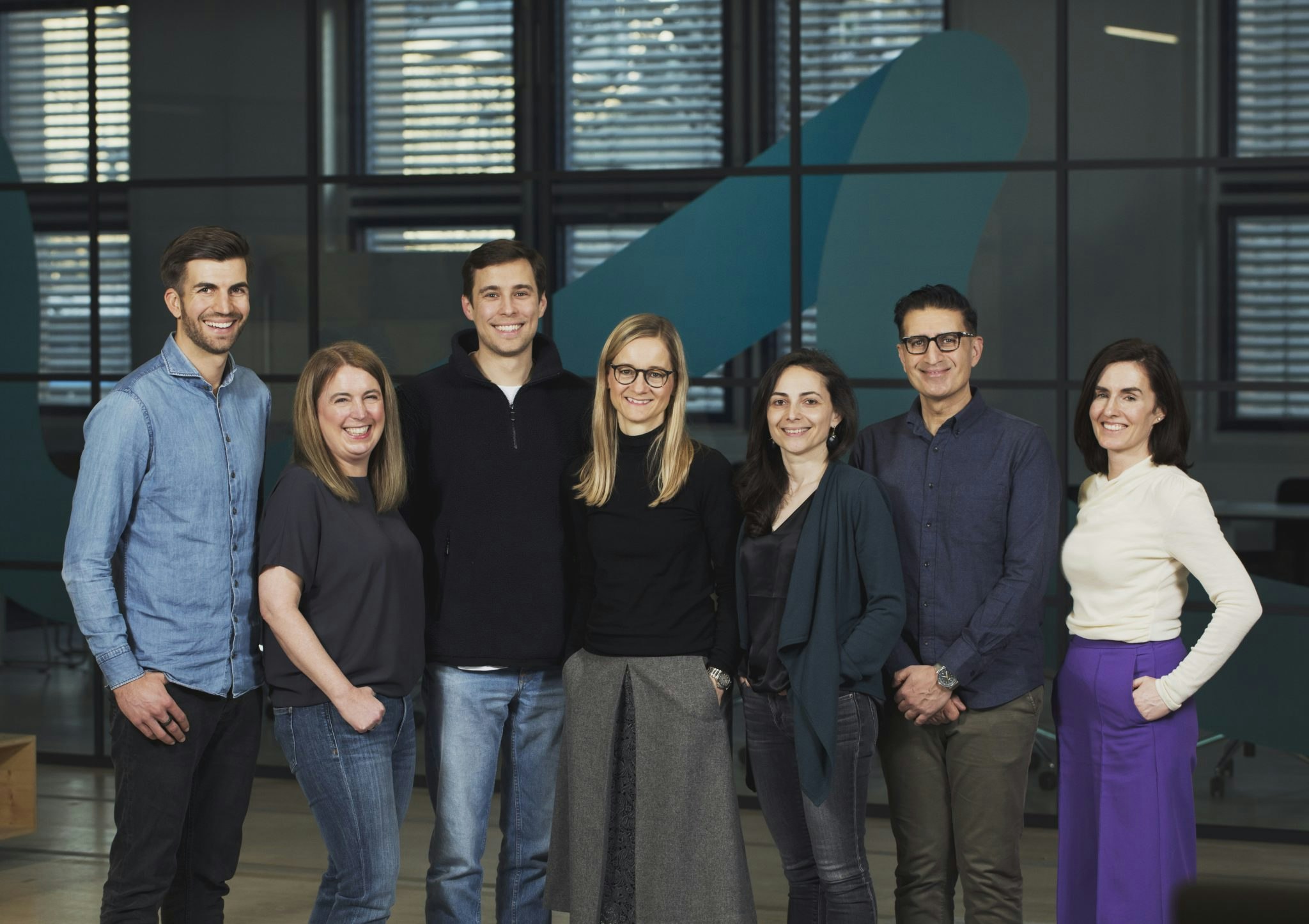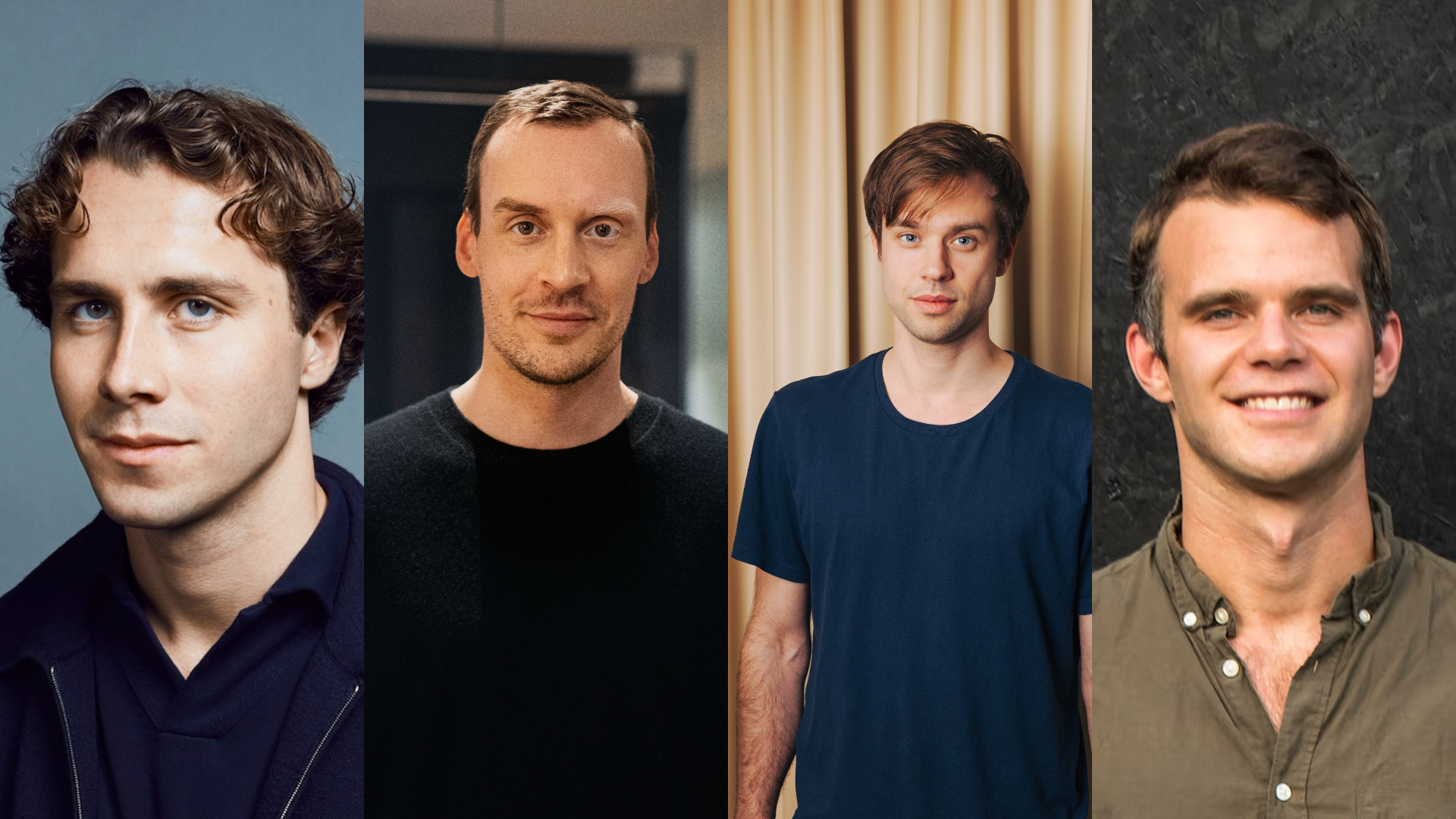When Personio first pitched to investors in 2015, the cofounders sold a vision of building a “European category leader” in one of the largest and most untapped HR software segments globally: people processes for SMEs.
At the time, businesses managed tasks such as absence tracking, payroll and holiday requests via Excel sheets — a nightmare for everyone involved. Personio digitised the lot with its cloud-based software which plugs directly into a company’s existing HR systems.
Nine years after launch, Munich-HQd Personio has 12k customers (businesses with between 10 to 2,000 employees) across 70 countries worldwide, though Germany remains its primary market. It's also grown its team to 2,000 people across eight offices in Berlin, Munich, London, Dublin, Amsterdam, Barcelona, Madrid and New York.
At its last funding round — a $200m Series E led by San Francisco-based investment firm GreenOaks in 2022 — Personio attracted a valuation of $8.5bn and public market benchmarks suggest it could one day be worth even more. US-based, NASDAQ-listed HR software Workday, which targets enterprise clients, has a market cap of over $55bn.
But while Personio has earned its place as one of the most valuable private tech companies in Europe, it still has much to do.
“In Europe we are at 0.6% of our overall market, so there’s a lot of opportunity for us to grow in our existing markets and future markets in Europe,” says Hanno Renner, Personio’s cofounder and CEO.
The question is: how fast can you grow market share?
Product growth
“Maintaining the level we’re at now and adding hundreds of million in revenues obviously starts to become more challenging; it’s the nature of scale,” says Renner, speaking to Sifted in his office in Munich.
Expanding its product range is one way to stimulate growth.
Last year Personio launched an automated payroll solution in Germany, which has the second most complex payroll in the world after France, according to the Global Payroll Complexity Index. It was a big milestone for the company, which plans to eventually roll out the solution to other markets — although this will take time, given that each country has its local regulations and processes for managing payroll.
In the last 12 months, Personio has also launched a compensation management app, online employee surveys and a whistleblowing channel to help companies comply with legislation which came into force in the EU in 2023.
This speedy product roll-out is thanks to two smart moves — merging its product and tech teams and hiring former Facebook VP of product Maria Angelidou-Smith in November 2022 as chief product and technology officer to lead them.
“I think the way it changed when Maria came in is that we hold all of our product and engineering and design teams accountable for delivering customer value, and it’s not as much of a one against the other, but it’s very much bringing it together,” says Renner. “It’s led to much more cohesion.”
Like many scaleups, Personio will have to keep tweaking its organisational structure as it grows, to “deal with the complexity of the business while staying nimble,” says Michiel Kotting, partner at Northzone, who first invested in Personio at Series A in 2017.
“The reason they have been able to do so is their biggest opportunity — by always hiring the best people and giving them a ton of opportunity to develop,” he says.
Team
Every time Sifted visits Personio in Munich, its team is always that bit bigger. The office looks similar to when we last visited in 2022 — although the outdoor area, where people meet to have lunch or take a coffee break — now has a yellow tunnel slide.
Personio has been busy hiring executives in the last year, primarily from Silicon Valley. Naman Khan, a former VP of Salesforce and Dropbox in San Francisco, joined Personio in October 2023 as the company’s first CMO and Lenke Taylor, former chief people officer at Twitch and Buzzfeed, joined as its new CPO in February this year.
Personio is currently hiring “across every function of the business,” says Renner, and it plans to grow its workforce by a third this year.
But hiring for specialised roles in Europe — such as senior designers, product managers or staff engineers with specialisations in AI — is still proving tricky for Personio and other European tech companies, says Renner. To broaden the talent pool it could access, Personio opened an office in New York in September last year, where 60 people currently work.
“If you think about a principal designer that has built software tech products at a large scale and at high quality — there are just more of these companies in the US, and therefore more talent available,” says Renner.

Experienced executive talent is particularly hard to find in Europe; three of Personio’s executives relocated from the US to Europe to work for the company.
The talent conundrum will “get easier”, says Renner “with companies like ourselves and others in Europe, grooming that talent, having them learn, go through that journey, and then them going on to work at, or found, the next generation of startups.”
Personio’s alumni network is growing — and has already spawned several entrepreneurs who have founded businesses in everything from software solutions across a variety of HR tech areas to fashion labels and products made out of mushrooms.
This flywheel effect is what’s needed in Europe to build trillion-dollar companies, says Renner — who’s now an active angel investor himself too. He’s made 16 angel investments to date in companies such as remote hiring platform Workmotion and AI-powered enterprise contact centre Parloa — and is also a scout for London- and San Francisco-based VC Accel.
Profitability: the long-term aim
Renner’s office is very ‘Munich’. Fixed above the sofa is a rather sporty-looking bike that is always in view when the CEO takes Zoom calls.
“I do like a lot of sports, hence the bike,” he says laughing, adding that when he worked as a skipper “back in the day”, he used to train for triathlons. “Work and life always blends a bit, so doing a lot of sports keeps me balanced.”
Keeping a level head is perhaps what has kept Personio on the straight and narrow for the last nine years. The company has been less affected by the economic downturn than others, says Renner, as its product is essential for many businesses to keep running.
He and his cofounders Roman Schmacher, Arseniy Vershinin and Jonas Rieke have always steered the business to be in a position where it could be profitable at any time — but right now, the focus is on making investments into the product and team, says Renner.
The company doesn’t share revenue figures, but company filings show the business brought in €94.7m in revenue in 2022. Renner says the company continues to grow at a “high double digit rate in line with what we had planned” and that its home market of Germany is already profitable.
In our case, we can be profitable at the stage where we are now… but we want to make sure we continue to execute on the market opportunity.
“It’s not like, is this business model ever going to work or be profitable, or we need to get a certain scale so we can be profitable. In our case, we can be profitable at the stage where we are now… but we want to make sure we continue to execute on the market opportunity,” says Renner.
Personio has raised $774m to date from investors such as Accel, Index Ventures and Global Founders’ Capital. But Renner assures me that that money isn’t just “sitting on the balance sheet”.
Personio has doubled its customer base since 2022, adding 6k more customers — but it’s set its sights on capturing the other 1.7m SMEs in Europe, which requires a lot of investment.
Renner says Personio is seeing big “growth momentum” from mid-market customers (business of 200-2,000 employees) and is focusing on getting more customers on board from this segment. There will also be further product launches announced later in 2024, but Renner can’t disclose what those are just yet.
He hasn’t ruled out making more acquisitions either — Personio previously acquired Spanish payroll startup Rollbox and employee experience startup Back — but Renner says he’s very picky about his choices.
Potential acquisition candidates must have a high-quality product that suits Personio’s offering and adds value to its customers — as well as a team that fits well into Personio’s culture, he says.
Creating European leaders
Aside from having home-grown talent, what’s needed to create globally relevant companies in Europe is an ambitious mindset, says Renner.
Founders of companies the size of Personio often “get given a pat on the back saying ‘oh, well done, you made it, let’s now focus on the next generation of startups,” says Renner, instead of encouraging those companies to get bigger and better.
Instead, let’s think about the next 10x. To be a global category leader, how can we continue to grow?
“Instead, let’s think about the next 10x. To be a global category leader, how can we continue to grow?” he says.
“I mean SAP is the only real globally relevant software company out of Europe and that was founded 45 years ago. How can we make sure that the next generation of software companies…. are not only created in the US?”
Renner certainly has his eye on the prize. While Personio is not yet ready for a public listing, it’s definitely on the cards. In January 2023, Personio converted to a Societas Europas (SE) which allows companies to carry out business activities more easily across EU member states — and is often seen as the foundation for an IPO.
“If the vision to remain an independent company that can exist for decades to come, even if at some point I’m not leading it in 10-15 whatever years, means becoming a public company… we’ll go public at some point,” says Renner, but it’s not a pressing item on the agenda, he adds.
“We think for the next 12-24 months we will remain focused on our execution and building a great company, attracting as many customers as possible. And then, whether we go public in two years, three years or four years, I don’t really know.”
The location of a public listing is also something Personio would have to figure out. Renner says Personio would love to list in Germany, but there are aspects of listing in the country which remain a problem; for one thing, companies have to show a strong track record of profitability to list on the Frankfurt stock exchange.
Renner’s level of ambition has not changed since he first started his company in 2015, fresh out of business school. He says the idea of success for him would be to create economic value in Europe, strengthen the local job market and build software of the same quality as the giants that came before Personio.
“I want to be a category-leading software company that's globally relevant,” he says. “And that remains a European company at heart."



